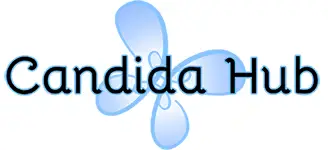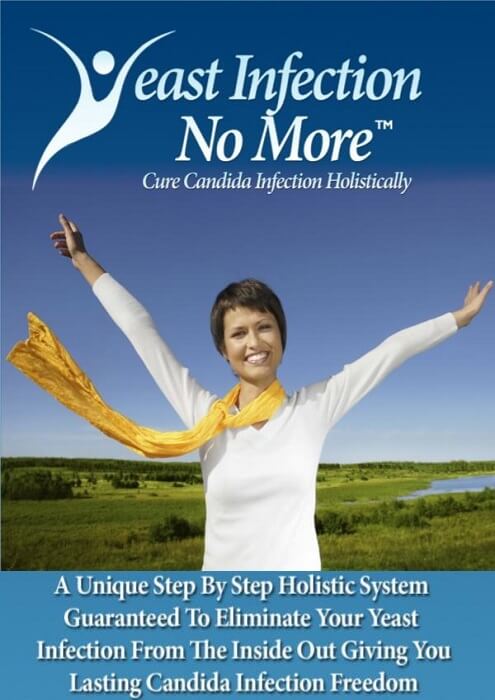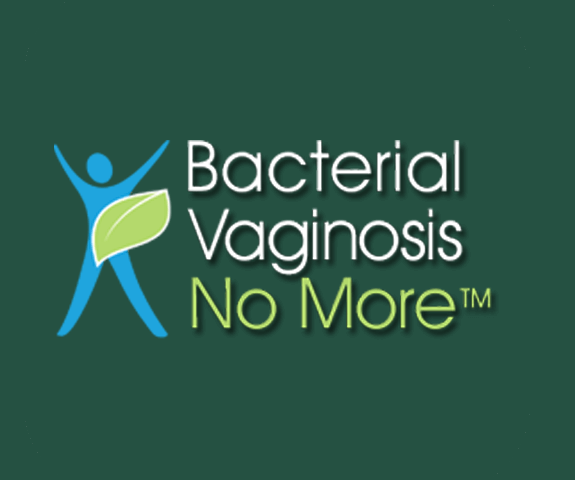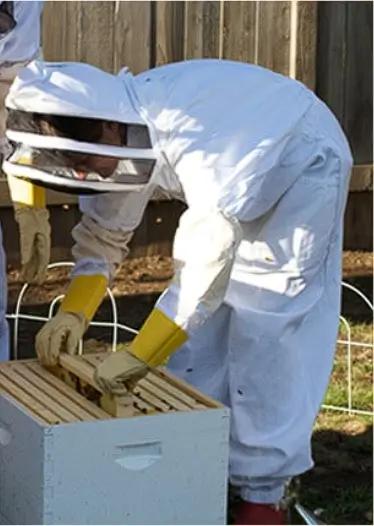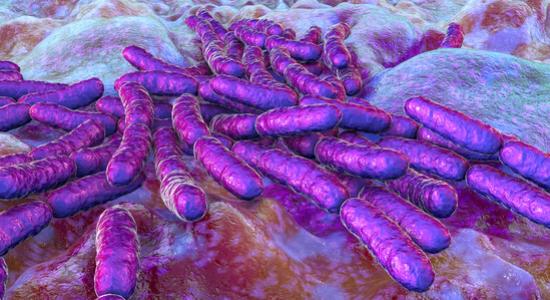See all "Acidopilus" Section Topics
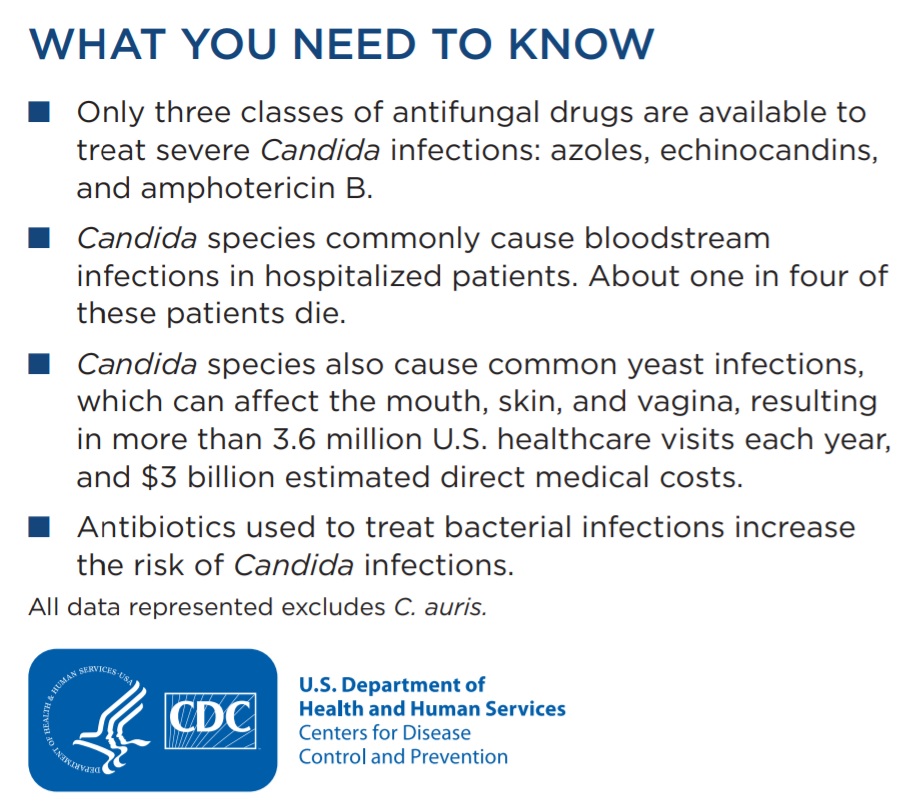
Candida albicans is a very ubiquitous microorganism which abides in about 80% of the human population. Typically Candida albicans thrives in the gastrointestinal tract and mouth; a common part of the gut microbiota. Most carriers of Candida albicans develop no symptoms or health maladies at all. It is only when this opportunistic pathogen is given the right conditions will a Candida infection become imminent.
The right conditions typically occur due to anything that: removes helpful bacterial flora in the body, provides more food for Candida albicans, or causes the pH of the vagina to become less acidic. This gives this rightly named “opportunistic” pathogen an opportunity to attack the human body. What causes the aforementioned changes is typically these reasons:
- Antibiotic regimens can cause the friendly bacteria in the vagina and intestines to die off, leaving more resources for Candida albicans to utilize. Without the helpful microbiota to keep Candida albicans in check, a yeast infection soon starts.
- Hormonal changes brought on by pregnancy can cause a yeast infection. Pregnancy can modify the vagina’s pH and cause more blood sugar (i.e. food for yeast) to be present in the blood. With more food and an environment with a more tolerable pH, this opportunistic pathogen quickly invades.
- A weak immune system can occasionally become unable to fight Candida. People infected with the human immunodeficiency virus (HIV) and acquired immune deficiency syndrome (AIDS) sometimes experience severe yeast infection.
- Hormonal changes brought on by the menstrual process can also give Candida albicans a better environment to thrive in as well.
A 1/2 Day & Yeast is Gone!
Linda Allen suffered from yeast infections for years. Through researching natural medicine & Candida, she found an efficacious solution!
Linda is one expert you want on your side! Let her show you how to get rid of a superficial yeast infection in just 12 hours; AND, keep it gone!
A 60-day, 100% money back guarantee is provided.
Visit Official Site!Common Symptoms
You can tell you have Candida albicans by checking over a list of symptoms that typically occur in the event of a Candida albicans outbreak. There is usually vaginal soreness and itching that occurs as the yeast invade the skin inside and outside of the vagina. Additionally, there is a thick white discharge that occurs with yeast infections. The consistency of the white discharge can be similar to cottage cheese.
Eliminate Bacterial Vaginosis & Vaginal Odor
Jennifer O’Brien is one prominent expert on BV that knows how to get rid of vaginal odor. BV is a common infection that you don’t have to put up with.
Jennifer will show you how to naturally eliminate vaginal odor in just 3 days.
A 60-day, 100% money back guarantee is provided.
Visit Official Site!Common Treatments
When Candida albicans invades the vagina and becomes so entrenched that a yeast infection occurs it can be difficult to get it out. There are many choices available, most notably you may be aware of over the counter products like Monistat.
Monistat works by utilizing a chemical known as miconazole nitrate; a powerful anti-fungal agent. miconazole nitrate kills yeast by inhibiting yeast cell’s production of ergosterol, a vital part of a yeast cell’s cell membrane. Depending on the version of Monistat you buy, the concentrations of the active ingredient (miconazole nitrate) will vary.
Clair Goodall: Author & Nature Lover
Clair Goodall is a bee-obsessed natural medicine convert from Minnesota. She is one expert you might want to know more about!
Clair will help you protect you and your family from toxic products and chemicals and help you discover solutions from nature.
Also, Clair’s book is backed by a 60-day, 100% money back guarantee
Visit Official Site!Herbal Treatments
By eliminating highly glycemic foods from your diet you can effectively limit the amount of sugar your blood provides to a yeast infection. The lower your blood sugar, the more yeast will starve from lack of sugar.
Herbs like goldenseal, rosemary, calendula, cedar, and myrrh can help kill candida. Make strong decoctions of these herbs and apply the decoction as a douche. You can also soak a rag in the decoction and place it directly on the skin to help relieve itching.
Garlic can also help by removing the Candida albicans from the digestive tract. Eat 1 or more raw garlic cloves every day you have the infection. The powerful phytochemicals in garlic should help to combat the overgrowth of the yeast.
L. acidophilus capsules and suppositories will make excellent additions to your repertoire of anti-candida tools. Placing suppositories in the vagina full of lactobacillus acidophilus will help restore the natural balance of vaginal microbiota. Taking lactobacillus acidophilus orally will also help restore the balance of good bacteria in the gastrointestinal system; making it difficult for Candida albicans to thrive.
In Conclusion: See a Doctor
If all else fails make sure you talk to a licensed physician to see what he may recommend. Your symptoms may be caused by other vaginal health maladies; making an accurate self diagnosis difficult to ascertain.
Author: Mr. Nicholas Gross

Nick Gross is a natural medicine enthusiast who has been researching and writing about natural medicine since 2008. Nick is primarily a web developer but also researches and authors written and video content about natural health. Nick has a bachelor’s degree in Management Information Systems from the University of Northern Iowa.
Disclaimer
The information on this website is not a prescription for anyone. This information is for informational or educational purposes only, and is not a substitute for professional medical advice or consultations with healthcare professionals.
Affiliate Disclosure
Some of the links provided on this website are affiliate links. When a purchase is made through these links, Candida Hub earns money from commission. This helps to keep the website up and helpful to people for free. Thank you for any support!
Stay Up to Date
If you enjoyed this article, consider following / liking our Facebook page. This page is primarily utilized to alert followers of new articles that are put on Candida Hub. Candida related news is also discussed. While you are there, you can see what has been more recently added to Candida Hub.
